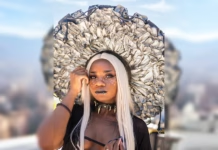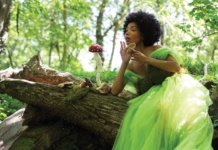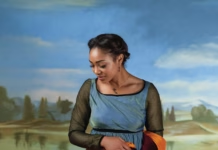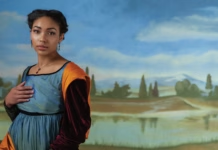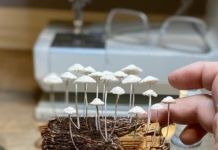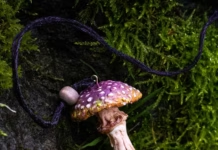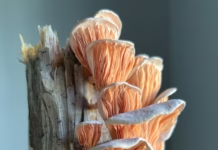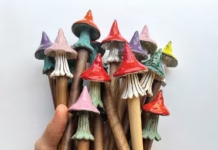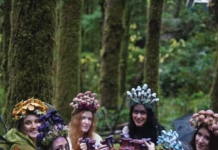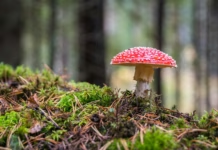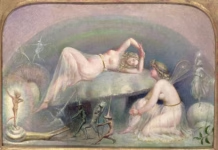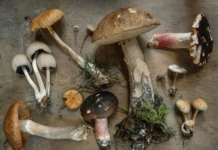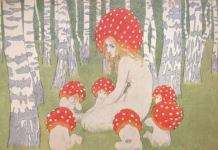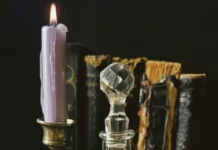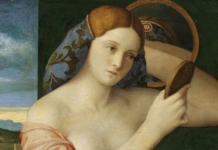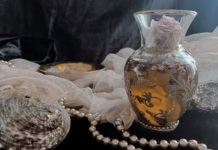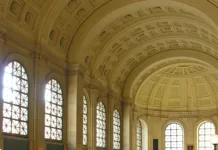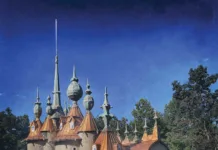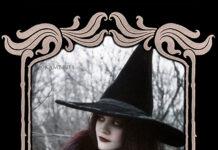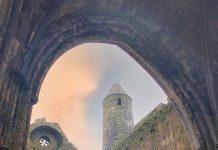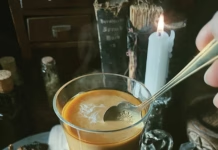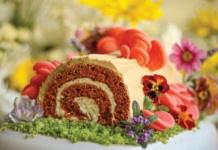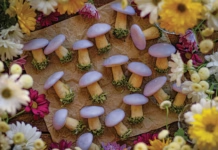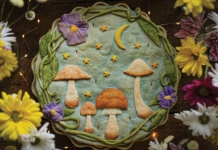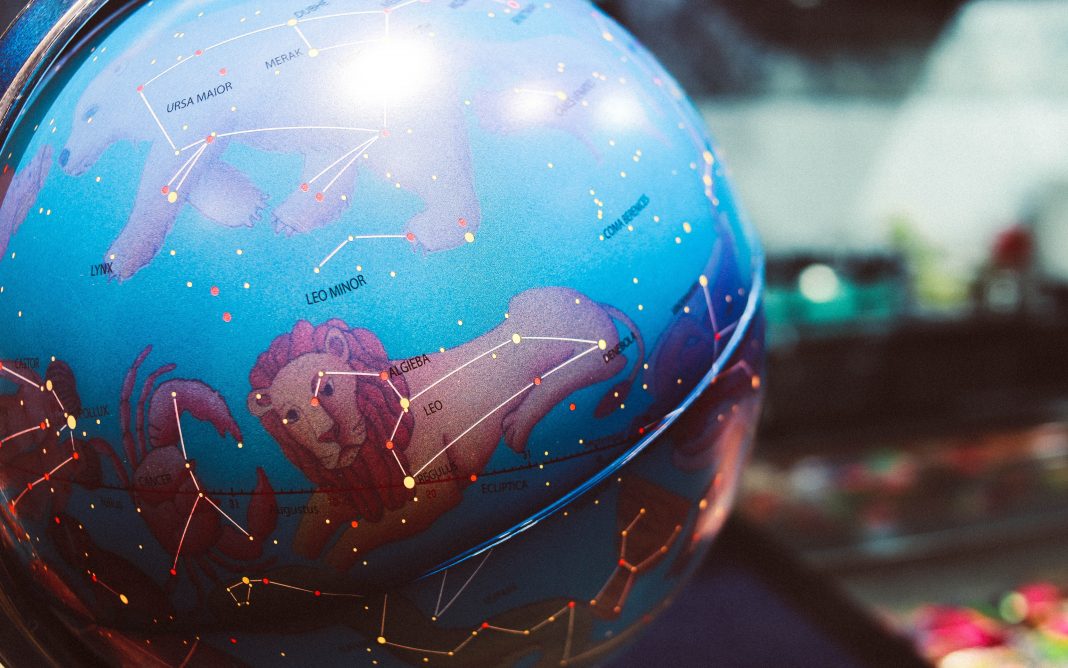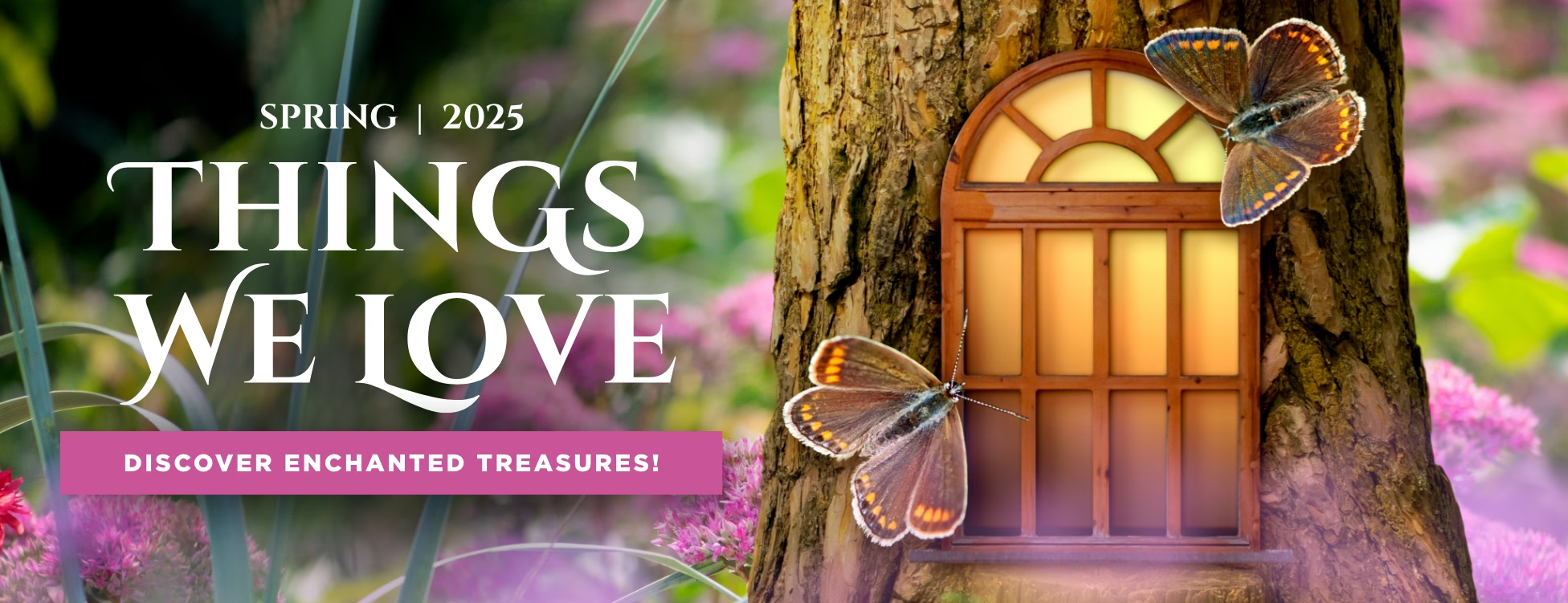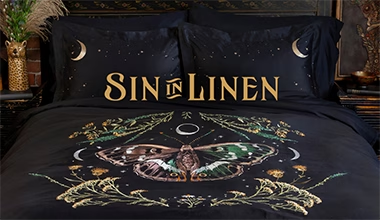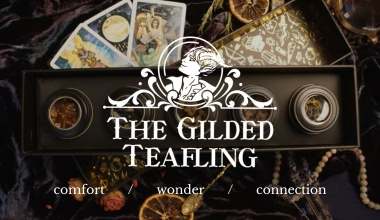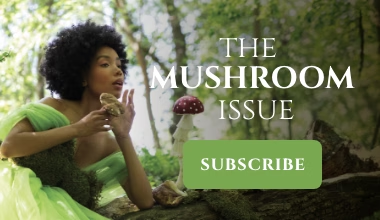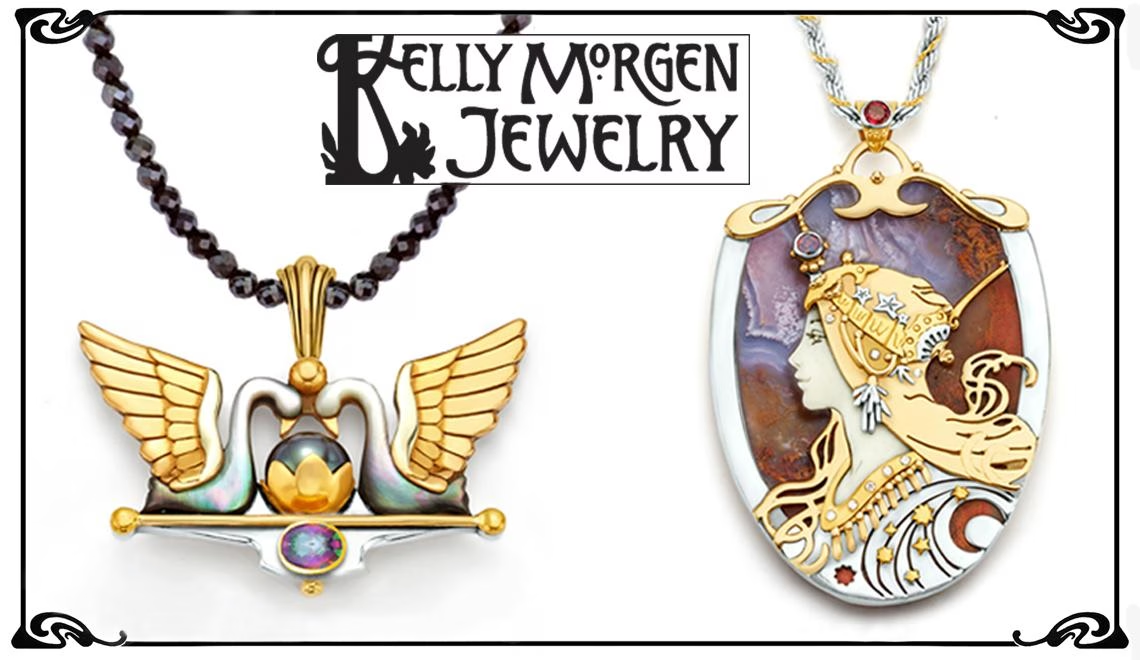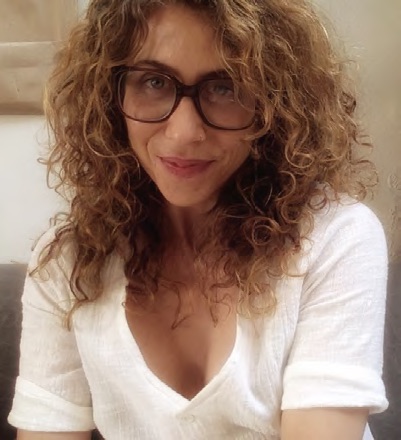
Ariana Reines is an award-winning poet, a translator of several French books, a playwright (her first play, Telephone, received two Obie awards), a performing artist with past stints at the Whitney Biennial and the Guggenheim, among other places—and, since 2012, a practicing astrologer. A new kind of astrologer, that is, who uses the language and imagination of poetry to examine the movements and effects of the heavens. In an interview with Poetry London, she described Uranus moving into Taurus as “volcanic and earthquaking.” For her monthly moon report for Artforum, she recently wrote a full-fledged poem: “after the rain hit / the creosote the sun / hit it & a fragrance / wild & sweet was hitting / me, a springtime / sensation of rising seed / confusing the seasons / undoing the doom i clasp / & unclasp like the warm / gem in the keats poem / but this was not the prescription / you asked for / & the moon is full / not new …”
Nylon called her one of the “best astrologists on the internet” in 2016; Reines is “sure to use words you’ve never heard of, or never even read,” it wrote, describing her approach as “antiquarian, alien, recerché, foxy—uniquely Ariana.” Intellectual and incisive, Reines works one on one with clients, with offerings like the Marguerite Hardass Birth Chart Reading, named in honor of French novelist Marguerite Duras—an in-depth and loving three-and-a-half-hour introduction to your birth chart that Reines’s clients say is better than a year of therapy. Or the Birth Rights intensive, a personalized workshop for artists in which Reines does “stereo vision” on a client’s birth chart and work, based on courses she designed for the Jack Kerouac School of Disembodied Poetics at Naropa University and her ongoing work as a visiting critic at the Yale School of Art, among other projects.
Below, we ask her a few questions about her unique—and poetic—approach to the ancient art of astrology.
Carolyn Turgeon: How did you come to astrology, and what about it lured you in?
Ariana Reines: I was in a car accident in Haiti, and through a series of really strange chance circumstances catalyzed by that accident, I became close with a Houngan, or voodoo priest, who is also a Gnostic bishop. What is going on with your mother, he asked me out of the blue, the night we met. A lot, I said. I know, he said. When can you come back, he asked. Saturday, I said. Good, he said. He asked for my birth data. When I returned to his office a few days later, he had done my chart in ballpoint pen, on a piece of paper he had ripped from his desk blotter. I realized then that astrology was integrated completely into his healing and priestly work. The birth chart allowed him to be precise about the whole of reality. Astrology wasn’t this separate thing to be fetishized. It was one dimension of a holistic approach to what matters in life—both on a cosmic level and on a very, very practical level. That thrilled me.
CT: Is there anything specific that he did?
AR: He simply talked to me with such profound and penetrating insight, and such love, that I wept for the sake of the truth. Human beings are so hungry for the truth. We so seldom get to encounter it head on. I had avoided astrology—and everything that could be construed as “witchy” (I’m from Salem, Massachusetts)—because during the period my mom’s paranoid schizophrenia was becoming apparent, she also happened to be developing an obsession with astrology. Massachusetts has a pretty dark history when it comes to spooky, witchy, and “crazy” women, and from an early age I internalized a dread of appearing in any way irrational, of giving any man an excuse to defame me, lock me up, invalidate my word or my experience.
And yet, my whole life people have been telling me I’m “witchy,” and there are so many ways my trajectory has been utterly magical. When that truck drove into me in Haiti and led me to encounter the beauty and power of the Vodou tradition, but also, on a more universal level, the fearlessness and bottomless love of true healers, I knew it was time to learn something about the history of consciousness. Astrology is not magic: It is a syncretic practice for reading the relationships between heavenly bodies and life on earth, a practice that evolved over thousands of years. Fundamentally, it is about living relationships in a living cosmos, not dead ideas or necromancy. We Americans often forget the difference between life and death, between being and object. We tend to dread death but fail to celebrate or really grasp the miracle of birth. That morning I spent with Michel André after a chance meeting transformed me.
CT: What was most alluring or surprising in your studies that followed?
AR: A lot of the medical texts from the early Renaissance, the late Middle Ages, their approaches to healing issues of the body are filled with astrological lore and information. That’s what I was really excited about when I was first studying astrology. I had studied a lot of the alchemical tradition and started reading all of that before I knew anything about astrology. But of course, it’s all full of astrological material. And it turns out Shakespeare is teeming with astrological material, Chaucer, and so many others.
CT: How do poetry and astrology connect with you?
AR: I was really adamant that Mercury, my last book of poems, was not an astrological book. I didn’t know anything about astrology at that point. And at the time, I felt like I didn’t want to write astrological poetry because I don’t want to be prescriptive or boringly symbolic about reality. To me, poetry kind of scrambles the order in the heavens and in some ways defies it and is meant to defy it. But now, after six, almost seven years
of practice, there is probably more astrological material in my poems. My last column for Artforum was a poem. I think that as people in the general public become more fluent in the sort of structure of it and the language of astrology, it’s something that you can work with in really playful ways. We’re on a planet among other planets that are orbiting this star. It’s natural that people want language and symbols to help us feel our place and relationship to the rest of the cosmos—and especially our cozy little corner of it.
CT: Are there ways that you would connect looking at the world through an astrological lens and looking at it through a poetic lens—ways that overlap?
AR: For me, they’re different points of view. I think poetry helps as a kind of magic side of unlocking a chart, the art side of astrology. But astrology is also a very precise mathematical discipline. Not only does it involve a lot of foundations and myths, but there is math, a need to have a grasp of basic astronomy, and also tremendous new research into the ways astrology was practiced in Ancient Greece, in medieval India, in 17th century England, Al-Andalus, and so on. So there’s a very technical side to it that is in some ways the opposite of poetry.
One of the things that I work with my clients on a lot, especially when people are dealing with malefic signatures and difficult, challenging angles in their natal chart or difficult transits—I’m really interested in, let’s call it the yoga of transubstantiating difficult circumstances. And that’s one of the places where poetry comes in. It is possible to bend reality with poetry, and to discover treasures through poetry that would otherwise go to waste. I think, in some ways, we’re all tasked to figure out how to thrive in hostile circumstances. And so it’s important to me not to be too superstitious about when things are gnarly in the sky. No matter what, at every second, your job is to live. You chose to incarnate and it’s a privilege to have a body, even to suffer in it. Frankly it’s magic that we exist at all. The wonder of that is the domain of poetry, and without that wonder there is no way to get through hell.
CT: What is a typical reading like for you? What is a goal for you when you’re working with a client?
AR: Well, it’s really their goal that guides it. It’s funny, I had three sessions this morning and of course each one was different. Yet there were themes in common—this is one of the pleasures and mysteries of doing this work. We are so different. The intricacies of the human soul and heart are incredible. No two human beings are alike. Our gifts are different, our burdens are different. And yet—we all need the same things. A natal chart reading is definitely not about me and my goal. I tend to work with a lot of artists, writers, visual artists, performers, and creative people in general, which is an unbelievable privilege, because these are people who tend to already be pretty self-reflective, enjoy critical thinking and have at least some hospitality to the beyond.
CT: Is there any advice you’d give to someone interested in exploring what you just described and learning to have that sort of perspective and incorporate it into their lives?
AR: I think that reading myths and reading ancient and sacred texts is a really, really enriching thing to do. Many sacred texts from traditions around the world can now be read online for free, whereas in earlier times you would have needed deep initiation and in some cases years of spiritual training before you’d even be allowed to lay eyes on such books. All the problems that we face as individuals in our own psyches and our own lives, all the problems that we face politically, have been faced before on this planet. These myths and stories, the parables and fables, they have keys to the problems of human nature and also the problems of political and social life that we face today.
I also believe that some form of daily meditative and physical practice is essential for keeping your balance in convulsive times—and this applies whether you’re an attorney or a shaman’s apprentice.
CT: I’m wondering if you have anything to say about adding an astrological perspective to your own life? Is there something you would say about what astrology adds to the way you inhabit the world?
AR: That’s a beautiful question. Obviously, I’m speaking for myself, but I think this is part of why astrology is something that people have become so curious about and have fallen in love with so deeply. We are living beings in a living universe and a living cosmos. Anything that can help us connect to the larger aliveness that we’re partaking of is extraordinarily powerful because the tiny things in our lives, the big things in our lives, the things that appear tiny from our point of view in the universe and the things that are big—the proportion of it is kind of wacky, right? What’s big and what’s small? Every particle of our existence partakes of living divinity.
Astrology is a way to connect to what is living, to connect the apparently mundane and ordinary to larger processes, and to develop our capacity for living relationships in a culture that is very much focused on death, deadening, objects, and consumption—the process of turning our feelings into objects, turning our lives into objects. Astrology is a reminder of the cyclical and living nature of time and space, of reality itself. It’s an amazing gift.



